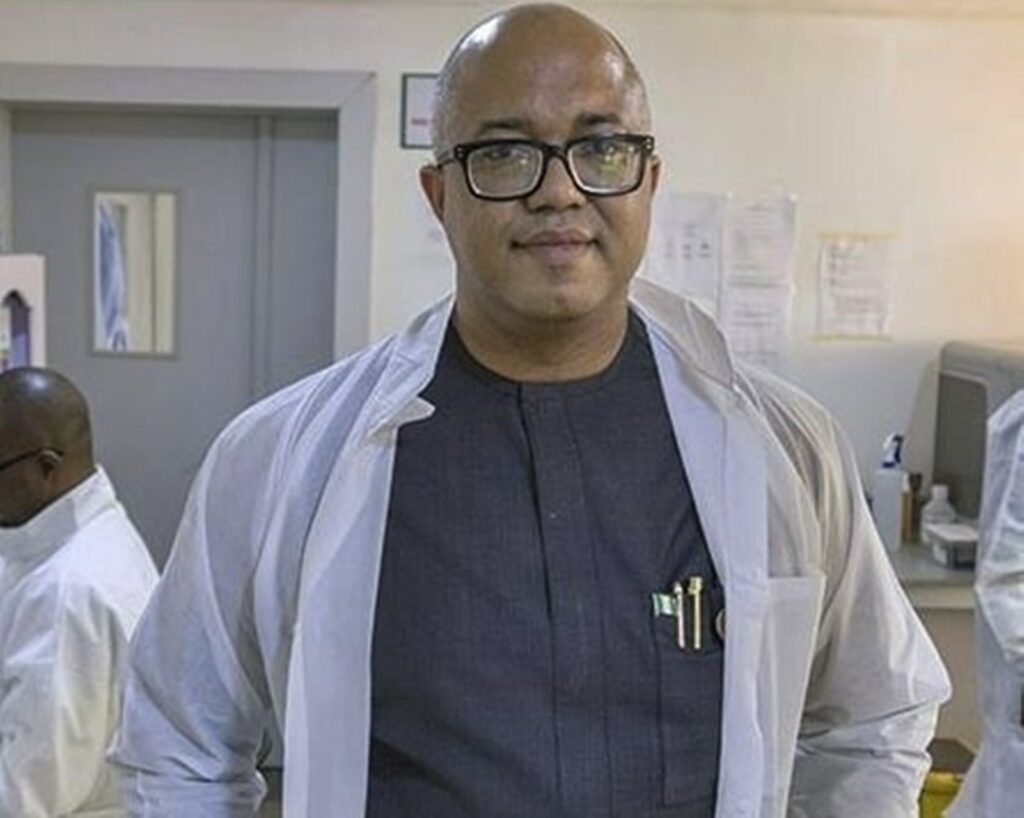NCDC DG, Dr. Chikwe Ihekweazu By Chioma Obinna In the last few weeks, COVID-19 infection rates have been on the decline in Nigeria and ...


By Chioma Obinna
In the last few weeks, COVID-19 infection rates have been on the decline in Nigeria and many Nigerians are wondering if the country has reached the peak of the outbreak.
The Director-General of the Nigeria Centre for Disease Control, NCDC, Dr Chikwe Ihekweazu speaks to Chioma Obinna on this development and challenges in the response. He speaks on Nigeria’s case-fatality while maintaining that chloroquine is only used at the clinical trial level in the country. Excerpts:
Current COVID-19 situation in Nigeria
Our review of the current situation shows that while the number of new confirmed cases has reduced, the number of samples collected has not declined drastically.
We are developing various strategies to scale up sample collection and test more people to determine the true situation. Despite the decline in new confirmed cases, we are still scaling up response activities.
We continue to work very closely with states and our partners to strengthen sample collection, turnaround time, risk communications, and other response activities.
READ ALSO: NCDC certifies Bayelsa Molecular Lab
Has the COVID-19 outbreak peaked in Nigeria?
We have learned from other countries that recorded their first case earlier than Nigeria did, that the trajectory of the outbreak can change based on various factors. While we have gone through months of recording very high cases, we are not reducing the intensity of our response now.
As more economic and social activities resume, more people will be in contact with each other leading to a high risk of transmission.
Place of chloroquine in the response
We are very grateful for the leadership of our sister-agency, NAFDAC in the conduct of clinical trials for COVID-19.
Currently, our case management guidelines advise that chloroquine and hydroxychloroquine are only used in the context of clinical trials. The results from these clinical trials and other scientific processes will determine if these will be used as part of treatment modalities for COVID-19 in Nigeria.
Response in the states
The response to COVID-19 in Nigeria is a marathon and not a sprint. The work that we are doing now is not just to respond to the current outbreak, but to strengthen our capacity and prepare for future outbreaks and pandemics.
We have deployed Rapid Response Teams to support all states including Kogi and Cross-River.
Many states have risen up to the challenge by establishing new molecular laboratories, funding surge staff, establishing sample collection centres at LGA level, scaling up risk communications, and other response activities.
We are grateful for the increased investment in health security by State Governments. We are also grateful for the role played by the Nigerian Governors’ Forum in facilitating collaboration between us and the States.
What Nigerian researchers should be doing at this time
One of the biggest challenges we have faced in the response to COVID-19 is the spread of misinformation and the misinterpretation of science.
We have a responsibility to ensure that the right information is disseminated and scientific processes are well communicated. This is an important strategy for us to reduce the mistrust in science that we have seen in the last few months in Nigeria and globally.
In addition to this, Nigerian researchers have a role to play in the research and development of the tools we need to fight COVID-19 and other outbreaks. It is important that our response is adapted to our context, and this is one of several values that local research can add.
Why there is a spike in Plateau state
Plateau State has scaled up its sample collection strategy and this has helped us find more cases. The State also has a laboratory- National Veterinary Research Institute, Vom- that enables testing within the shortest possible time.
It is very important to emphasise that the risk of an increase in cases will be there as we re-open our religious centres, markets, schools, etc. This is why we must adhere to health and safety measures in place.
What NCDC is doing
The COVID-19 pandemic has definitely taught us a lot of lessons. We must strengthen health security in Nigeria, at national and sub-national levels. We need to focus on building our laboratory, surveillance, emergency preparedness, and response structures in all states so that we are better prepared for the next outbreak.
This includes investment in human resources to drive these structures. While we have leveraged on existing in-country resources for COVID-19 such as State Emergency Operations Centres, use of SORMAS for digital tools, and others, it is apparent that we must rapidly increase our investment in and focus on health security in Nigeria.
Major challenges
Nigeria has faced several challenges in responding to COVID-19. Firstly, we are responding to a pandemic caused by a new virus that had not been detected anywhere before December 2019.
This means we had to start from close to ground zero to respond- activating a new form of testing in laboratories, developing guidelines, rapidly reviewing guidelines in line with scientific evidence, etc. In addition to this, we have faced a huge challenge of the spread of misinformation, especially spread by social media. This has contributed to self-medication and affected health-seeking behaviour in some cases.
READ ALSO: NCDC asks health workers to be at alert, as flights resume
The pandemic has also led to the introduction of some health and social measures that are not usually the norm in our society, such as the use of face masks.
In some places, there is very poor adherence to these measures, contributing to the spread of cases. Despite these challenges, we continue to work with other government institutions and our partners to develop key strategies to minimise the number of cases.
Why Nigeria’s case fatality ratio differs
There are various reasons why the case fatality ratio in Nigeria differs from countries across the world. In some countries, the majority of people infected are those above 60 years who are vulnerable and have co-morbidities.
The data so far has shown that people who are above 60 years and have other illnesses are more likely to have severe cases of COVID-19 and die. In Nigeria, the majority of people infected are between 31-40.
Despite this, we continue to urge all Nigerians to continue to all our advice as the virus can affect anyone even though there are more deaths in people above 60.
In addition, the Government of Nigeria has really provided strong leadership in response to COVID-19. The Presidential Task Force led by the Secretary to the Government of the Federation has enabled a multi-sectoral response and contributed to our ability to manage the outbreak without a doomsday scenario.
COVID-19 and Malaria
Like malaria, one of the most common symptoms of COVID-19 is fever. Despite this, both diseases differ in terms of mode of transmission and presentation at the severe stage. Malaria is endemic in Nigeria, and so it is common to find people with the disease. It is very important that Nigerians are aware of these facts to reduce the risk of the spread of COVID-19 and to protect their health. It is important to get a test if you feel ill and be treated appropriately- for malaria, COVID-19, or any other disease.
The post COVID-19: Chloroquine used only in clinical trials in Nigeria, says NCDC boss appeared first on Vanguard News.

No comments